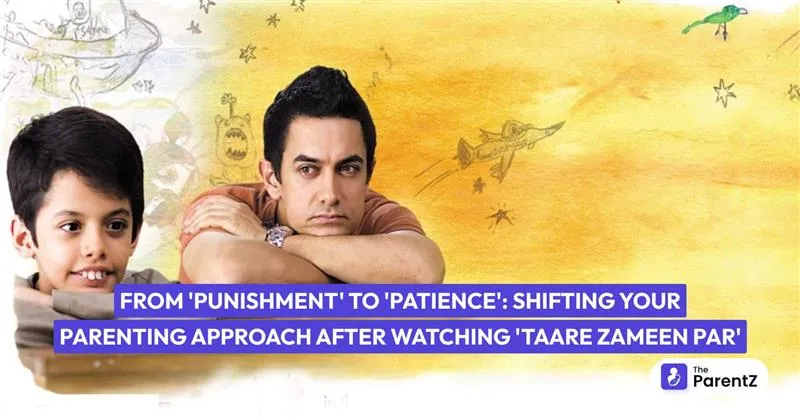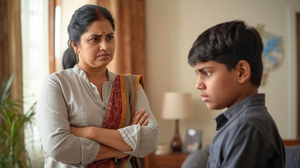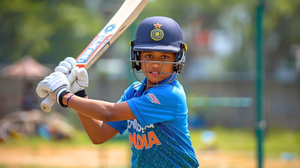How many times have you found yourself shouting at your child and then immediately feeling that sick knot in your stomach? How many nights have you lain awake replaying that moment when your words came out harsher than you intended, when your frustration got the better of your love?
If you've watched 'Taare Zameen Par', you know that gut-wrenching feeling when Nandkishore Awasthi sends his eight-year-old son Ishaan away to boarding school. You want to hate him for it, but then you realize something uncomfortable: you've been there too. Maybe not sending your child away, but definitely feeling that same helpless anger when nothing you do seems to work.
This movie isn't just about dyslexia or learning disabilities. It's about every parent who has ever looked at their struggling child and felt like they were failing them. It's about those moments when love gets tangled up with fear, when our desperation to help turns into something that hurts instead.
The truth? Most of us aren't monsters. We're just scared parents trying to do right by our kids in the only way we know how – even when that way is completely wrong.
When Love Feels Like War
Nandkishore Awasthi loves his son Ishaan deeply. Every harsh word, every punishment, every moment of frustration comes from a place of genuine concern. When he asks, "Kya banega wo bada hokar? Kaise baraabri kar paaegaa duniya ke saath? Kya saari umr khilata rahoongaa!" – doesn't every parent feel that fear in their bones?
This is the brutal truth about parenting: we know how harsh the world can be. We've lived through it, survived it, and sometimes barely made it through ourselves. So when we see our children struggling with basic tasks that seem so simple to us, panic sets in. We think if we push harder, demand more, show them the "right way" with enough force, they'll finally get it.
But what we don't realize is that sometimes, in our desperation to prepare them for the world, we become the very thing they need protection from.
The Child Behind the 'Problem'
Eight-year-old Ishaan wasn't being defiant when he couldn't read properly or write neatly. He wasn't being disrespectful when he seemed distracted or different. But how could his parents know that? All they saw were the symptoms: poor grades, rebellious behavior, a child who seemed to reject everything they were trying to give him.
When Ram Shankar Nikumbh enters Ishaan's life, he doesn't see a problem child. He sees a child with a problem. And that shift in perspective changes everything.
Nikumbh explains it beautifully: "Sochiye... ek bachcha... mahaz aath ya nau saal ka... Padh nahi pata, likh nahi pata, roz-marraah ke maamooli kaam nahi kar pata... Wo saari cheezen nahi kar paataa jo uske saath ke bachche badi aasaani se kar dete hain... kya beet-ti hogi uspar? Uske Self-confidence ki to dhajjiyaan udti hongi har roz!"
Think about it from your child's perspective for just a moment. Imagine being asked to do something every single day that feels impossible, while everyone around you does it effortlessly. Imagine the shame, the frustration, the helplessness. Wouldn't you act out too? Wouldn't you find ways to avoid, to rebel, to protect whatever little bit of self-worth you had left?
When Words Become Weapons
We tell ourselves we're not abusive parents because we don't hit our children. But Nikumbh shares a powerful story that stops us in our tracks: "Solomon Islands mein... jab adivasiyon ko jungle ka koi hissaa kheti karne ke liye saaf karna hota hai... wo ped-darakhton ko kaat-te nahi. Mahaz us ped ke paas saare pahunch jaate hain aur jee bhar ke ped ko gaali dete hain... koste hain... dekhte hi dekhte... kuch hi dinon mein ped murjhaa jata hai... apne aap hi mar jata hai."
This isn't just about dyslexia or learning disabilities. This is about every time we've called our child "lazy" instead of curious about why they're struggling. Every time we've said "you're not trying hard enough," instead of asking "what's making this difficult for you?" Every time we've chosen punishment over patience, criticism over compassion.
Our words have power. They can build up or tear down. They can create confidence or destroy it completely.
The Shift That Changes Everything
The beautiful thing about 'Taare Zameen Par' is that it doesn't paint Nandkishore as a villain. He's not an evil father, just a scared one. A father who realizes, perhaps too late, that his approach was breaking the very child he was trying to build up.
When Nandkishore finally sees Ishaan trying to read from the board, struggling but persisting, he can't even face his son. The tears in his eyes tell the whole story: the regret, the realization, the love that was always there but expressed in all the wrong ways.
This is the shift every parent needs to make: from seeing our children as problems to be fixed to seeing them as people to be understood. Instead of asking "What's wrong with my child?" we need to ask "What does my child need?"
Becoming the Nikumbh Your Child Needs
Not every child will have a Ram Shankar Nikumbh walk into their life. But every child deserves to have someone who sees their potential instead of their problems, who celebrates their uniqueness instead of trying to force them into a mold.
That someone could be you.
It starts with patience; the kind that doesn't give up when things get difficult. It continues with curiosity; genuinely wanting to understand your child's world instead of forcing them into yours. And it grows with love; the kind that says, "I love you exactly as you are, and I'll help you become who you're meant to be."
When Nikumbh worked with Ishaan, he didn't just teach him to read and write better. He gave him back his confidence, his joy, his sense of worth. All Ishaan needed was someone who believed in him, someone who saw his struggles and said, "Let me help you," instead of "Why can't you do this?"
The Hope That Heals
By the end of the film, Ishaan doesn't just improve academically – he transforms completely. His parents are speechless when they see the change in him. And it didn't happen because someone finally punished him enough or pushed him hard enough. It happened because someone showed him patience, understanding, and unconditional love.
Your child is not broken. They don't need to be fixed. They need to be seen, understood, and loved for exactly who they are. They need you to be curious about their struggles instead of frustrated by them. They need you to be their biggest supporter, not their harshest critic.
The world will be harsh enough to your child. At home, they need a safe harbor. They need someone who believes in them even when they can't believe in themselves. They need someone who will take the time to understand why they're struggling instead of just punishing them for not succeeding.
Sometimes, the bravest thing a parent can do is admit that their approach isn't working and be willing to try something different. Sometimes, love means stepping back from our fears about their future and focusing on their needs in the present.
Conclusion
Your child doesn't need perfection from you. They need presence. They need patience. They need you to be their Nikumbh, the person who sees their light even when they can't see it themselves.
The shift from punishment to patience isn't easy, but it's necessary. And like Ishaan's story shows us, when we make that shift, we don't just change our child's life, we change our own.





Be the first one to comment on this story.